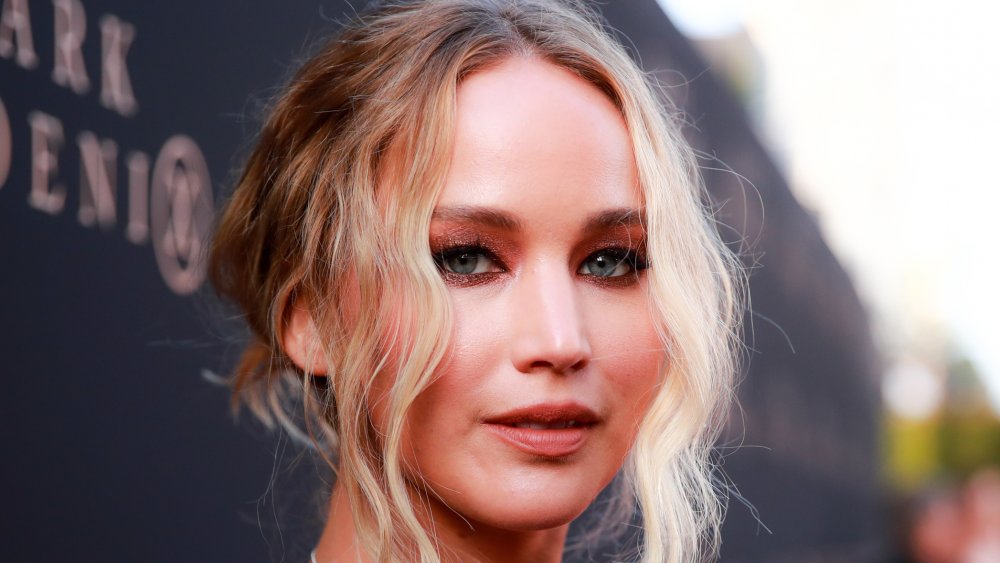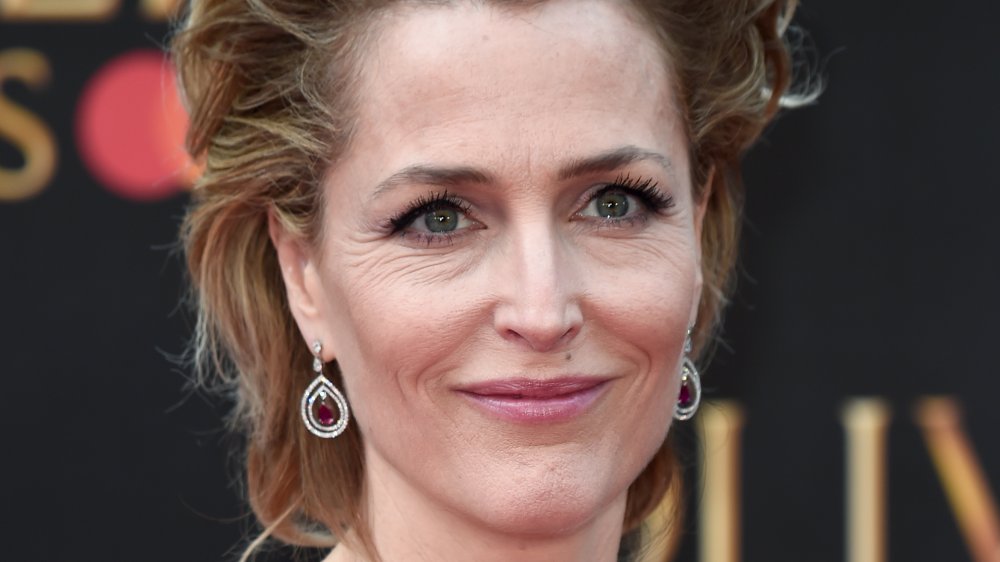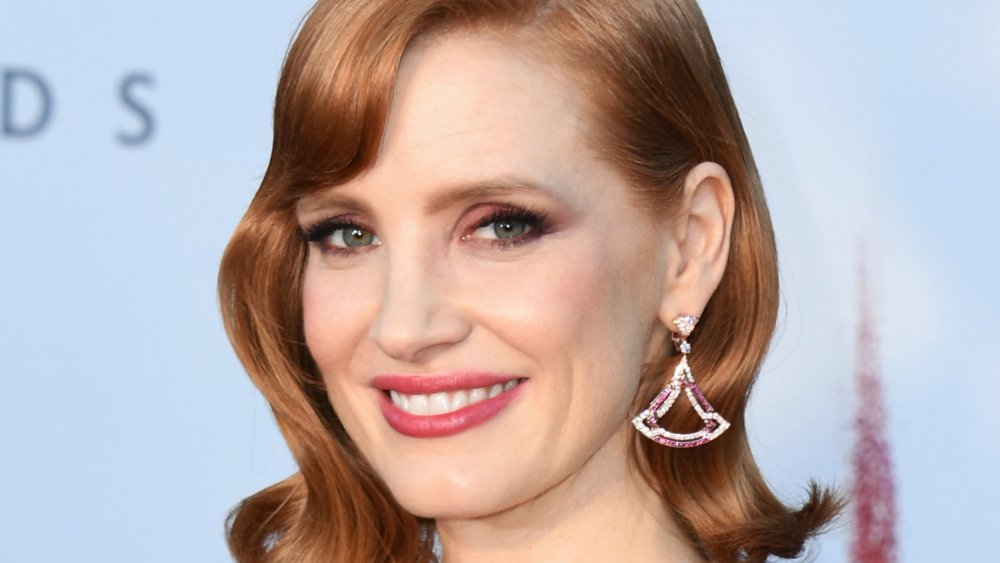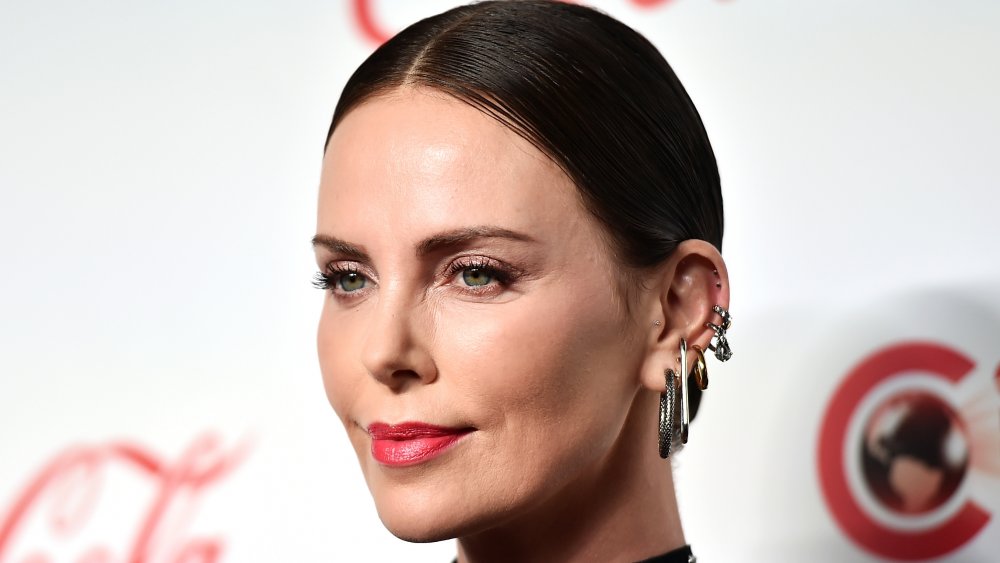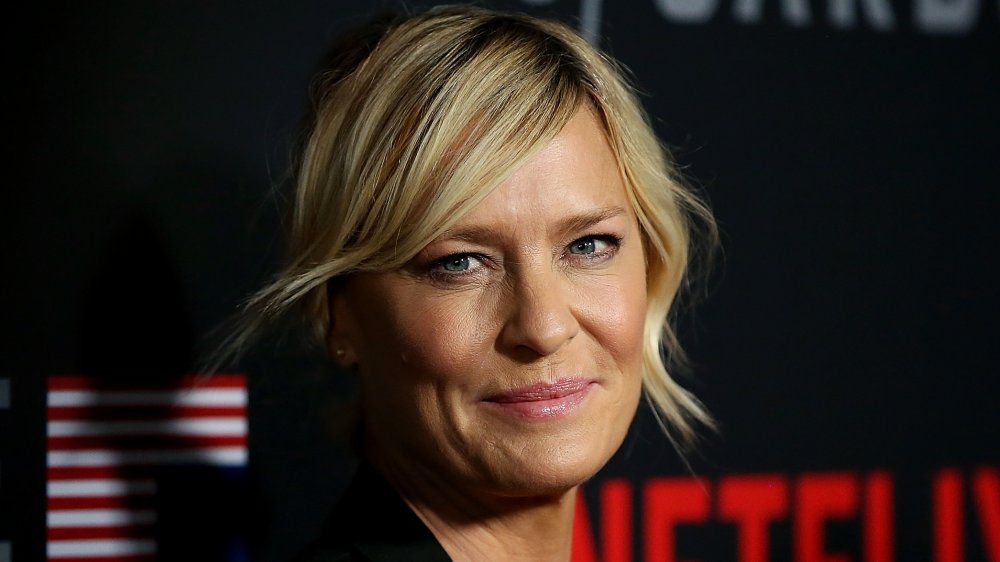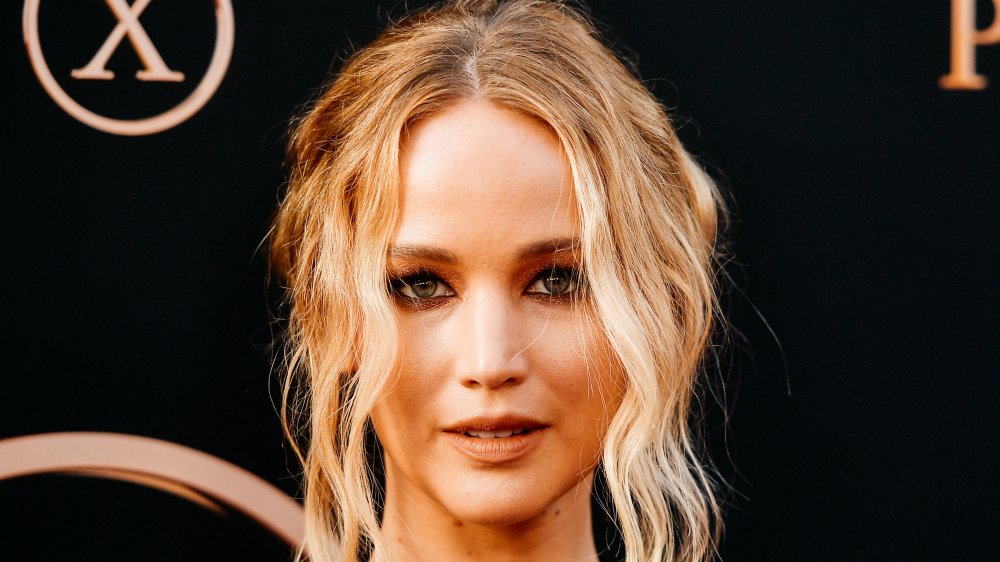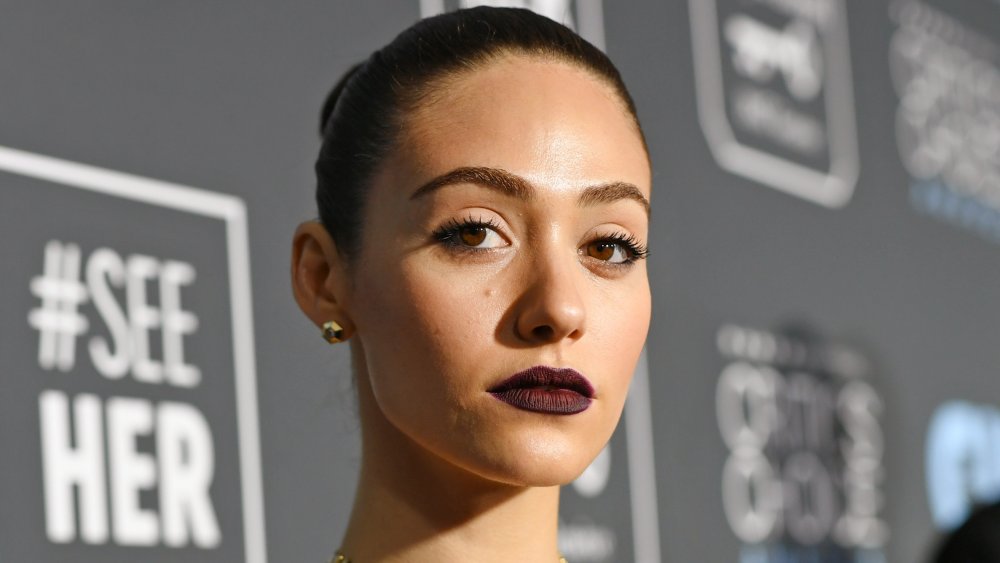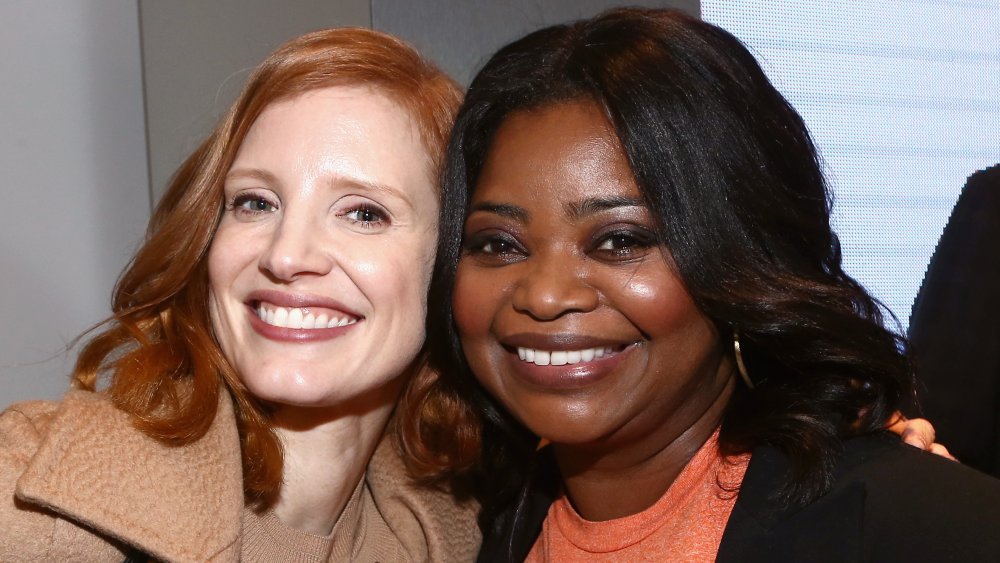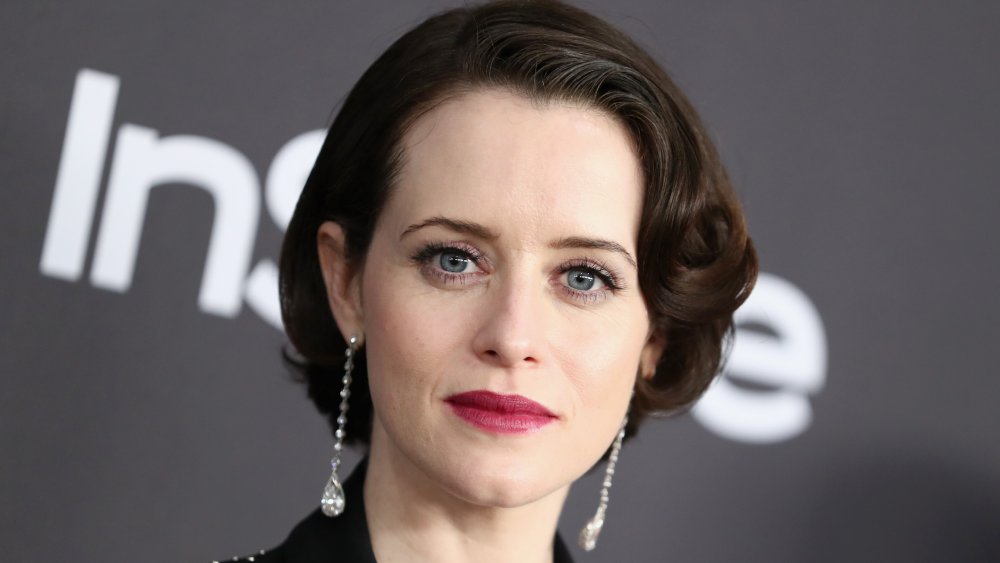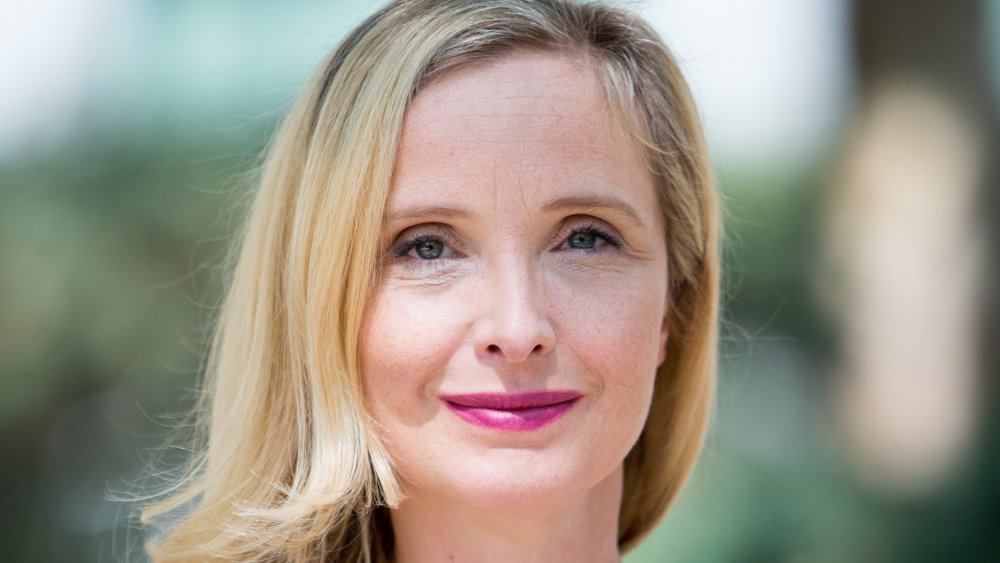Actresses Who Have Fought For Equal Pay And Won
Much like every profession in America, stories of the wage gap that persists between men and women in Hollywood continue to shock. 2018 saw one of the most publicized cases of pay inequality, when we learned that four-time Oscar nominee Michelle Williams was paid less than $1,000 to Mark Wahlberg's $1.5 million for reshoots of their film All the Money in the World. After winning an Emmy the following year for her performance in Fosse/Verdon (in which she was notably paid the same as co-star Sam Rockwell), Williams used her acceptance speech to speak out about the gender pay gap.
Another shocking example? After winning two Emmys for her turn on the hugely successful CBS drama, The Good Wife, Julianna Margulies was approached to reprise her role in the spinoff, The Good Fight — but she ultimately refused after the network balked at her asking fee. "I'm not a guest star; I started the whole thing with The Good Wife," Margulies explained to Deadline in 2019. "I wanted to be paid my worth and stand up for equal pay. If Jon Hamm came back for a Mad Men spinoff or Kiefer Sutherland wanted to do a 24 spinoff, they would be paid."
Fortunately, not all fights for equal pay end in defeat. Here is a list of actresses who took on the system and won.
Gillian Anderson: 'That was then, this is now'
When you think X-Files, you think Fox Mulder and Dana Scully. The legendary sci-fi series, which follows two FBI agents as they search for the existence of extraterrestrials, became a genre-defining show during its initial nine-season run thanks to the chemistry between its two stars: David Duchovny and Gillian Anderson.
However, Anderson later revealed to The Daily Beast that it took three full seasons for her to be paid the same as Duchovny, because producers saw her as nothing more as the "sidekick." So, after an Emmy win and becoming a feminist icon for her turn as the forensic pathologist, you'd think they would have offered Anderson equal pay for the 2016 series revival, right? Nope. The actress had to fight for equal pay a second time.
Calling the gap in their initial offers to return "shocking," Anderson remained frustrated that fighting for equal pay was still an issue. "Even in interviews in the last few years, people have said to me, 'I can't believe that happened, how did you feel about it, that is insane,'" she said. "And my response always was, 'That was then, this is now.' And then it happened again! I don't even know what to say about it." Eventually, Anderson secured equal pay for the gig, but as one would expect, she confirmed that she would not return for any future seasons.
Jessica Chastain: 'I drew a line in the sand'
With starring turns in such mega-hits as Zero Dark Thirty, Interstellar, Mama, and IT: Chapter Two, two-time Oscar nominated actress Jessica Chastain is done with even negotiating for equal pay anymore. "I'm not taking jobs anymore where I'm getting paid a quarter of what the male co-star is being paid," she told Variety in 2017. "I'm not allowing that in my life."
Chastain credits the infamous 2014 Sony hack that revealed Jennifer Lawrence was paid less than her male co-stars in American Hustle, and former Sony Pictures Entertainment Amy Pascal's comments defending the pay gap, for opening her eyes. "People want to work for less money. I'll pay them less money," Pascal said during a 2015 Bloomberg event. "I don't call them up and go, 'Can I give you some more?' ... What women have to do is not work for less money ... People should know what they're worth and say no."
The movie star told Variety that Pascal's comments got her "really pissed off" at first, but eventually the epiphany came: "We're not doing this anymore." Although she's not exactly concerned with what she makes on a film, Chastain refuses to work on any project where a male co-star is "getting five times" what she's paid. Chastain admitted that's she's lost out on big roles because of her stance, but doesn't care. "I've created a boundary," she explained. "I drew a line in the sand."
Charlize Theron: 'We just need to put our foot down'
With an Academy award under her belt, and as one of the most recognizable names in Hollywood, you'd think that Charlize Theron would be offered the same as her male co-star for reprising a role in a film that grossed almost $400 million worldwide, right? Unfortunately, no. For the The Huntsman, the sequel to Snow White and the Huntsman, Theron was initially asked to come back for less than what the studio offered Chris Hemsworth.
That didn't sit well with Theron, so she asked for equal pay and walked away with a reported salary in excess of $10 million. "'I have to give them credit because once I asked, they said yes," she told Elle in 2015. "They did not fight it. And maybe that's the message: That we just need to put our foot down." Theron added, "If you're doing the same job, you should be compensated and treated in the same way."
The infamous Sony hack served as a call to arms for Theron, as well, with the Mad Mad: Fury Road star citing Jennifer Lawrence and Amy Adams' pay discrepancies on American Hustle. "They're just as good as any of the guys on there," Theron explained. "Yeah, that pissed me off!"
Robin Wright: 'You better pay me or I'm going to go public'
One could make the case that Netflix didn't truly become "Netflix" until House of Cards. As the streaming service's very first original series, the widely popular political drama created the modern-day binge-watching phenomena due to the outstanding performances of the show's two leads: Kevin Spacey and Robin Wright as the sociopathic couple Frank and Claire Underwood.
However, despite being an essential part of the series, Wright reportedly made $420,000 per episode, almost $100,000 less than Spacey's reported $500,000. That didn't last very long. During an event at the Rockefeller Foundation in 2016, Wright detailed her fight for equal pay. "I was looking at statistics and Claire Underwood's character was more popular than [Frank's] for a period of time. So I capitalized on that moment. I was like, 'You better pay me or I'm going to go public,'" she explained (via HuffPost). "And they did." Wright added, "There are very few films or TV shows where the male, the patriarch, and the matriarch are equal. And they are in House of Cards."
Jennifer Lawrence: 'I didn't get mad at Sony. I got mad at myself'
After the Sony hack made her pay disparity on American Hustle public knowledge in 2014, Jennifer Lawrence wrote a powerful op-ed in Lenny Letter. "When the Sony hack happened and I found out how much less I was being paid than the lucky people with d**ks, I didn't get mad at Sony. I got mad at myself," she wrote. "I failed as a negotiator because I gave up early. I didn't want to keep fighting over millions of dollars that, frankly, due to two franchises, I don't need."
Lawrence went on to say that there "was an element of wanting to be liked" that led her to "close the deal without a real fight," because she didn't want to seem difficult to work with or labeled as "spoiled." However, that all changed when she "saw the payroll on the Internet" and realized "every man I was working with definitely didn't worry" about those labels.
Those lessons stuck with the Hunger Games star, and a few months before she penned the essay, she negotiated a $20 million salary to appear in Passengers. Her co-star Chris Pratt's salary? $10 million. "If the next few movies don't do well in the box office, I won't get paid the same," Lawrence told 60 Minutes. "That's how it works. If you can't prove that you deserve that number, then you're not gonna get it."
Emmy Rossum: 'It was part of a larger conversation'
After seven years of playing the tough Fiona Gallagher on Showtime's hit series, Shameless, Emmy Rossum was ready to be tough in real life. Although she shared top billing with co-star William H. Macy, she earned significantly less. So, before the eighth season was set to begin filming, Rossum held out for equal pay in a dispute that was called "a standoff." During her contract negotiations, Macy lent his vocal support to her cause, telling TMZ, "She works as hard as I do, she deserves everything."
However, it wasn't a standoff at all. "After it became public, it was a quick resolution," Rossum said during the 2017 Comedy Actress Roundtable for The Hollywood Reporter. While speaking with The Daily Beast, Rossum admitted that she didn't necessarily want her fight to go public, but understood "it was part of a larger conversation" after the news leaked. "It just as easily could not have worked out and not be a happy ending," she continued. "The bottom line of it was for me; I had to make a very unemotional, very business decision." Rossum went on to explain, "It's their responsibility to make the most profit, which means getting the talent that's best for the role at the cheapest rate possible. Everyone likes to get something on sale."
Octavia Spencer: 'We make far less than white women'
Not only does Jessica Chastain fight for equal pay for herself, but she also fights for her female co-stars, as well. During a 2018 Sundance Film Festival panel called Women Breaking Barriers, actress Octavia Spencer recalled a discussion she had about the wage gap with Chastain before the pair were to star in a holiday comedy together.
"We were talking about pay equity with men and women," Spencer said (via Time). "She was like, 'It's time that women get paid as much as men.' I'm like, 'Yeah Jessica; it's time!' We were dropping F-bombs and getting it all out there. And then I said, 'But here's the thing, women of color on that spectrum; we make far less than white women. So, if we're gonna have that conversation about pay equity, we gotta bring the women of color to the table.' And I told her my story, and we talked numbers, and she was quiet, and she said she had no idea that that's what it was like for women of color."
The Help Oscar-winner said she loves Chastain for "walking the walk" and "talking the talk." And in the subsequent negotiations, Chastain said either she and Spencer would make the same, or they would both walk. "Fast forward to last week," Spencer added, "we're making five times what we asked for."
Claire Foy: 'It definitely opened my eyes a lot'
Claire Foy's fight for equal pay brings us to another popular Netflix original series, The Crown. The historical drama follows the reign of Queen Elizabeth II, and earned its star a Golden Globe and an Emmy ... but not equal pay to co-star Matt Smith. After the fact that the series' queen didn't make top-billing was made public knowledge — and sparked outrage on social media — in 2018, Foy admitted that the revelation "definitely opened" her eyes to the wage gap that exists in Hollywood (via Vanity Fair).
"I'm not surprised that people saw [the story] and went, 'Oh, that's a bit odd," Foy told Entertainment Weekly. "But I know that Matt feels the same that I do, that it's odd to find yourself at the center [of a story] that you didn't particularly ask for." Vanity Fair reports that production company Left Blank Pictures apologized and lauded Foy's talent, but said Netflix wasn't "responsible for budgets and salaries" and "cannot be held personally responsible" for pay.
The Crown actor Jared Harris also weighed in on the controversy in the realest terms possible to Digital Spy: "I understand they made an apology but, you know, an apology and a [check] would be more welcome." That check was said to come more than two years after the series launched, when Foy supposedly received $274,000 in back pay (via Global Citizen) ... however she later disputed this number in 2019.
Julie Delpy: 'If I'm not paid the same, I won't do it'
When we discuss great trilogies in cinema history, we rarely mention director Richard Linklater's brilliant The Before Trilogy. Starring Julie Delpy and Ethan Hawke, 1995's Before Sunrise, 2004's Before Sunset, and 2013's Before Midnight serve as an intimate portrait of a relationship that spans nearly two decades.
However, during an interview with Variety at the 2019 Zurich Film Festival, Delpy revealed that she was paid "maybe a tenth" of what Hawke made on the first film and "half" on the second. When the final movie in the trilogy rolled around, Delpy had enough and demanded equal pay: "By the third movie, I said, 'Listen, guys, if I'm not paid the same, I won't do it.'" She went on to claim that wage discrimination isn't a bug in the system, but rather a feature. "As a woman," Delpy explained, "you know you're paid less than a man as a writer, as a director, as an actress."

